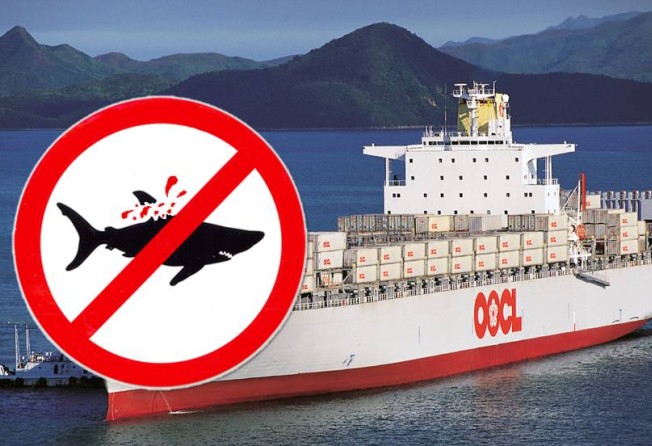
Shark fin imports dealt another blow as shipping-giant OOCL joins transport ban, but will Cathay Pacific follow?
Half world trade in fins comes through Hong Kong, sparking clampdown calls

Conservationists are urging Cathay Pacific as well as the government to show more commitment to shark conservation after locally based container shipping giant Orient Overseas Container Line decided to stop shipping shark, whale and dolphin.
In a corporate message to customers on Monday, OOCL, which is owned by the family of former chief executive Tung Chee-hwa, said it would not accept cargo bookings for whale, shark, dolphin and their related products with immediate effect in a commitment to sustainability and best practices in the industry.

Conservation group WildAid welcomed the move by the shipping firms.
“We congratulate OOCL on their blanket ban on all shark fin cargo shipments. We are thrilled that they have seen fit to follow their industry competitor MSC, who also announced [they were becoming] 100 per cent shark free in January,” said Alex Hofford, a wildlife campaigner from the local branch of WildAid, which is dedicated to stopping illegal wildlife trade by reducing demand through public awareness campaigns.
Hofford repeated the group’s call to Cathay Pacific to adopt the ban too. WildAid “strongly urged” the airline to ban all shark fin from its cargo operations, “something they have not yet done”.
The airline recently confirmed that it had decided not to impose an outright ban similar to those introduced by other carriers and had instead set up an external panel of experts to decide on a case-by-case basis whether each shipment is from a sustainable source.
Sustainable sources of shark fin refer to fisheries where the whole shark is landed and the fins exported as a by-product, as opposed to the brutal practice of finning, where sharks have their fins cut off and are then left to die.
The airline’s decision, which upset conservationists, came about three years after it declared a partial ban on the cargo in 2012. It announced a ban on unsustainable shark fin and a review of its carriage of any shark fin product, saying the cargo was “inconsistent with our commitment to sustainable development”.
According to the Hong Kong Shark Foundation, 30 airlines in the world have banned shark fin.
Hofford said OOCL’s announcement had no doubt sent a shock wave through the Environment Bureau. “It is now time for the government to kick-start without delay new legislation for a shark fin ban in order to save this incredible species from the very real threat of extinction,” he said.
He also called on the public to say no to shark fin.
